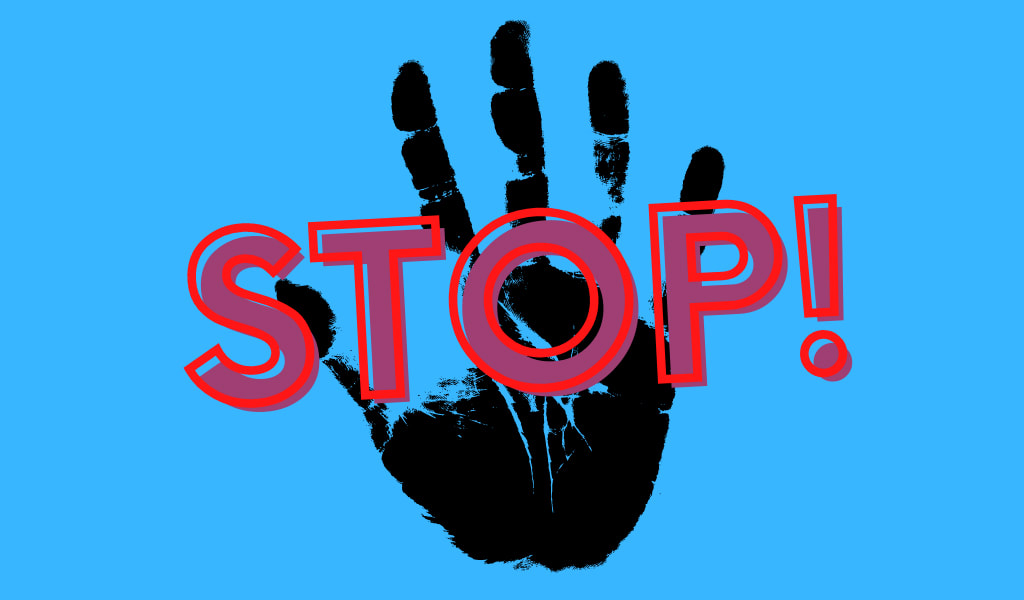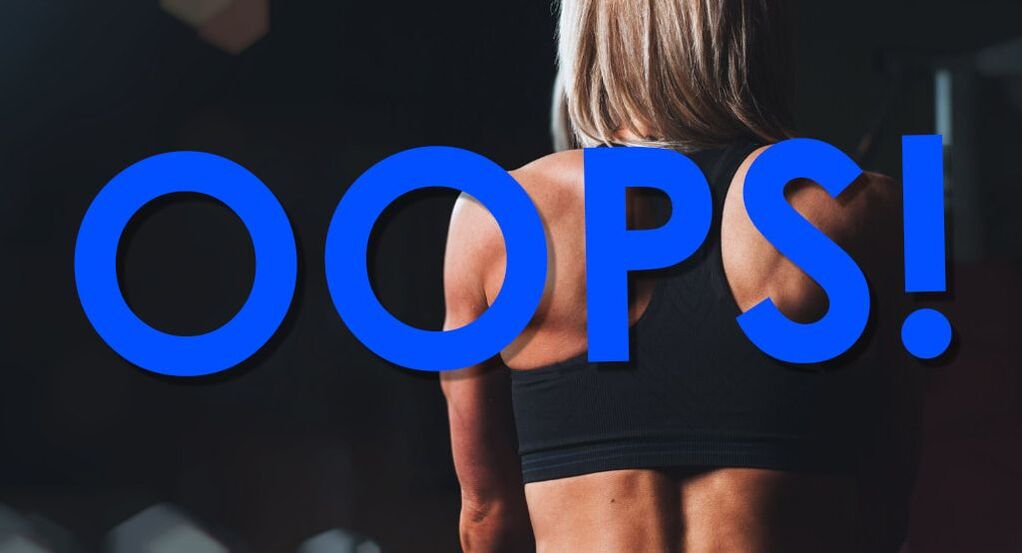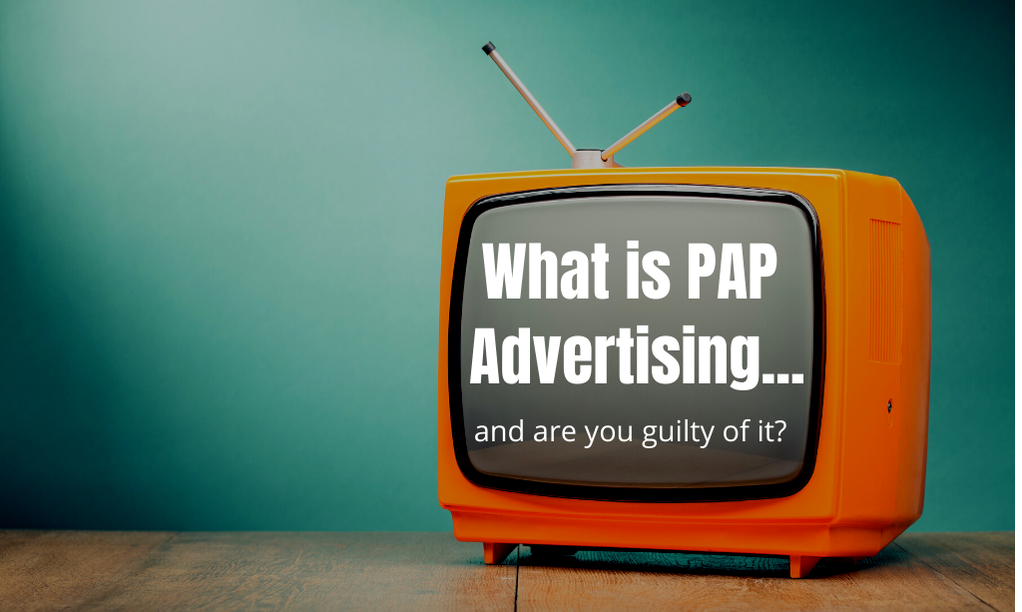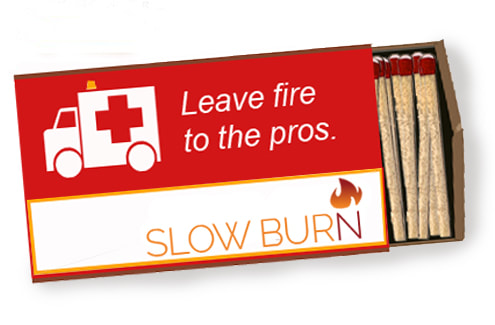|
Want Your Competition To Love You? Stop Advertising.
I've been having conversations with readers of this weekly screed. It's disappointing (and no surprise) to see a recurring theme. Business owners have stopped advertising. More than one media salesperson is bemoaning an "immediacy mentality over a marketing mindset." (Credit to Debra Carpenter at Michigan's Joy 99 for that gem.) The familiar refrain: Business owners can't understand why they should advertise. Business is slow, inventory is scarce, people are staying home, things are locked down--name an excuse. History keeps showing us the power of advertising when things are bad. It's the power of thriving versus dying. Authoritative sources are always showing that benefits of advertising in a downturn. "But my budget! I have no revenue!" And without advertising, where is more revenue going to come from? We have a friend who owns a remodeling business. When the 2008 recession hit, he was leveraged to the teeth. He also knew: stop advertising, and he would never recover. So he was resourceful. He kept finding creative ways to keep the marketing tap open and flowing. His main competitor did not. Our friend's business is now huge. It's a juggernaut. His competitor never recovered. Freight train, a supertanker, or marathon runner? Pick your marketing metaphor. It's about momentum and the long haul. When your business stops advertising, your customers forget you. Advertising is about keeping your brand in motion. Keeping it rolling. Keeping it afloat. Keeping it running. Stop the momentum, and getting back to speed is difficult. "But what if I can't afford to do it?" Better question: Can you afford not to? The overused word of our time is "pivot." Everyone's pivoting like ballerinas on meth. Yay, pivoting! Despite the overuse of the word, pivoting is about survival, from the macro to the micro, from the economy to the solopreneur. Pivot. Swivel. Revolve. Spin. Swing. Whatever your metaphorical verb, find a way do it. Work on a way to keep advertising. "I can't afford it!" is reactive thinking. "How can I afford it?" is proactive wisdom. And understand how to be effective. Being effective means being evocative. Your brand is the fuel that informs the emotion of your message. If you don't understand your brand, it's time to change that. For proof of the power of advertising in a downturn, don't take my word. Google "advertising in a recession." The first hit should be a great article from Harvard Business Review. https://hbr.org/2009/04/how-to-market-in-a-downturn-2 After that comes a parade of intel on doing the smart thing. Keep running your marathon, do it with wisdom, and you will beat the runners who quit. LIGHTNING BRANDING ON AMAZON The Kindle edition of our new book is now available at Amazon for the bargain price of $19.95. For details about our new Lightning Branding courses, both do-it-yourself and we-do-it-with-you editions, click here. (There's even a video of us!) Cheers, Blaine Parker Your Lean, Mean Creative Director in Park City
0 Comments
Your founder creates a brand name that contains the letter "L" many times.
Why? So, to a Japanese buyer, it sounds western. (If you are unaware, the Japanese have difficulty pronouncing the letter "L.") A decade after selling your first pair of pants, your IPO raises almost $328 million. For three years in a row, your brand ends up on a majorpublication's list of fastest growing companies. You become known for using "holistic guerrilla marketing." You want your customer to feel that they are part of a larger community. But then come the controversies. One line of clothing made from seaweed provides "anti-inflammatory, antibacterial, hydrating and detoxifying benefits." But independent lab tests disprove that claim. You have to stop claiming it. Next, customers are complaining of poor quality. Products are falling apart after just a few uses. Oops. Some of your reusable bags are recalled for containing high amounts of lead Then, everyone's favorite media laugh-fest. Turns out, a very expensive pair of pants is too thin. They become transparent. You recall 17% of your entire inventory. Major cost. Bad press. The Chief Product Officer resigns. Then, your founder mocks how Japanese customers pronounce the brand name. (Remember all those instances of the letter "L"? What's he thinking?) The founder is asked why there are no clothes for plus-size women. He says it's because they're too expensive to make. Customers complain about fabric pilling. The founder blames it on women wearing it wrong. And on having body shapes inconsistent with the clothing design. He says some women's bodies are inconsistent with the brand's clothing. When the founder is forced to resign, some folks are unsurprised. Later, the founder publishes an open letter to shareholders. He says the company is losing ground to competitors. The founder launches a website specifically to criticize the company, which has lost its way. (Based on what got him fired, I'm wondering: what was the company's way in the first place?) And now, the latest media giggle... "Resist Capitalism." The brand is being ridiculed for using that phrase. That idea is one component of a "Decolonizing Gender" yoga workshop it promoted. And that is how the firestorm of scorn and mockery comes raining down upon the brand. It happened last week. The brand is a lightning rod. The media delights in whipping it. But what is the truth? The truth is that the brand did not create the event. A brand ambassador created it. But the company shared it on their social media feeds. It seems nobody in charge of social had the good sense to question the message vis à vis the brand. Hello, communication overload! In this over-fast, overcommunicated culture, many in charge of communicating are overwhelmed or underqualified. Or both. Neither you nor I will ever have an international, multi-billion-dollar brand. (Nothing personal.) Nonetheless, the small-business brands we do have are still judged by how they make people feel. Our customers pay attention. How do our brands behave? How are our customers speaking of us? The good news: at least this ridiculed brand is being talked about. And as that gender-challenged gentleman from The Old Country once said, "There's only one thing worse in the world than being talked about, and that's not being talked about." Yes, we have to be judicious about what we say and how we behave. But we still have to do things that are worth talking about. We each have to make our customer feel something. We just have to hope we are being on-brand. And not looking like idiots. Got courage? LAST CHANCE FOR FREE... It's going away soon, because it is now on amazon Kindle for $19.95. Get the last remaining free copy of Lightning Branding: How to Generate Revenue Faster With An Electrifying New Brand right here. For details about our new Lightning Branding courses, both do-it-yourself and we-do-it-with-you editions, click here. (There's even a video of us!) Cheers, Blaine Parker Your Lean, Mean Creative Director in Park City Let's rename item-and-price advertising for what it is, shall we? I admit it. I'm still losing sleep over item and price advertising. We need to rename it. Let's call it "piece-and-price." A piece of merchandise is an item, right? And "piece and price" lets us use the acronym PAP. Yay! Acronyms! PAP advertising! And "PAP" is fitting, eh? As you may know, the word "pap" has two definitions. 1) "Bland soft or semiliquid food such as that suitable for babies or invalids." 2) "Reading matter that is worthless or lacking in substance." Synonyms for "pap" include "nonsense," "drivel," "rubbish," "trash," and "noise." The latter is my favorite. "Noise" is a direct reference to communication science. Noise stands between the sender of a message and the receiver. In our case, noise is a barrier between advertiser and customer. And PAP advertising is just noise. Look at so many car dealers and appliance stores. "Picture! Price! Buy now!" Zero effort to engender a good feeling about their business. Back when I was in radio, my most successful car dealer advertiser sold out their inventory every month. They did it by advertising one thing: Brand. Every message compelled you to feel good about their dealership. They made you want to buy a car because it made them sound like people you want to be friends with. Contrast that with the unbranded competition: "Yeah, we sell that, too. Buy it now!" But...being king is different. Can you be the king of the PAP you advertise? Remember when big-screen TVs were unusual and expensive? Every day, lots of PAP advertisers were showing you big TVs and big prices in their race to the bottom. But not The King. In California, a famous retailer called himself "The King of Big Screen TVs." He had PAP advertising. Big TVs! Low prices! However... The King also showed you his face. He told you his name. He promised same-day delivery and 100% happiness. He said the customer is always right. He also promised, in every ad, "I AM the king of big screens!" He had a brand and he advertised it. One can argue: it is an imperfect brand. But it IS a brand. It is not just PAP. And for 30 years, he built a reputation as the leader in big-screen TV sales. At his peak, he was selling $30 million in big TVs-out of a single retail store. Yes, TVs. One store. 30 million bucks a year. When he died in 2015, he was famous. Big newspapers and magazines wrote stories about him. He remains a celebrity even today. His brand outlasted his business. People loved him. Nobody loves PAP. Unbranded PAP is racing to the bottom of the barrel. Human beings are irrational, emotional creatures. They make decisions using emotion. This is not my opinion. This is Nobel-prize winning science. Winning people over requires appealing to their emotions over the long term. Your business must feel right. Making it so requires brand. What if you are afraid of paying too much for a big TV? Who would you trust? a) The generic appliance retailer, no branded personality, displaying pictures and prices (PAP!) of washing machines, refrigerators, ranges and, oh, big TVs? Or... b) The guy who spends 30 years displaying pictures of big TVs at low prices while saying "I'm the king of big TV and you're the boss!" It's not high art. It doesn't need to be. It needs to be authentic, resonant and consistent. It needs to feel good. It needs to be something besides PAP. Know someone who needs to electrify their branding for business as unusual? There's still a free copy of Lightning Branding: How to Generate Revenue Faster With An Electrifying New Brand is still available by clicking here. For details about our new Lightning Branding courses, both do-it-yourself and we-do-it-with-you editions, click here. (There's even a video of us!) Cheers, Blaine Parker Your Lean, Mean Creative Director in Park City |
AuthorBlaine Parker is prone to ranting about any and all things related to brand. In many ways, he is a professional curmudgeon. While there is no known vaccine for this, the condition is also not contagious. Unless you choose it to be so. Archives
February 2022
Categories
All
|
|
© Copyright 2020 Slow Burn Marketing LLC |




 RSS Feed
RSS Feed

